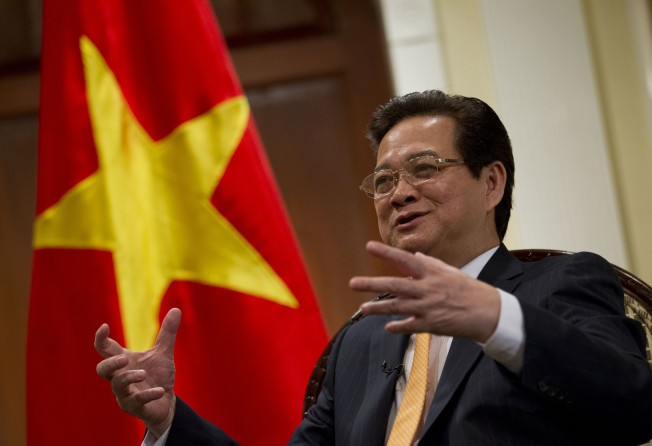Vietnam PM opens door to foreign investors
Prime minister vows to allow greater foreign ownership of banks amid flagging economy

Vietnam's prime minister pledged to subject state-owned companies to competition and allow greater foreign ownership of banks as the government seeks to revive growth and join a key trade agreement.
Over the next five years, Vietnam's state companies will focus on areas such as infrastructure that "the private sector cannot or does not want to invest in," said Prime Minister Nguyen Tan Dung. The government plans to devalue the dong as much as 2 per cent by the end of the year and let foreign companies own up to 49 per cent of local banks in the "near future," Dung said.
Vietnam's economy faces its most severe slump in at least a decade, hurt by slower lending as banks strain under the weight of bad debt incurred largely by the state sector. Removing protections for state firms would help Vietnam in seeking greater access to the US market to strengthen its economy, and underpin efforts to boost political ties.
State enterprises will need "to operate in the market economy," Dung said. "We will treat them as equal to other enterprises."
There are plans to sell shares in firms such as Vietnam Airlines, Vietnam Posts & Telecommunications, and Vietnam Oil & Gas, he said, without giving a specific time frame for divestment.
Dung said he is considering increasing the foreign ownership limit in banks and telecommunications firms. Total foreign ownership in any lender is currently limited to 30 per cent and the holding of any single foreign investor at 20 per cent. Those limits curb offshore interest in Vietnamese banks, Standard & Poor's said in August.
The government plans to devalue the dong because it considers it overvalued against the US dollar, Dung said. The timing of a devaluation is "dependent on the market," he added.
Vietnam devalued its currency by 1 per cent in June, the first move since 2011, and the central bank has said any adjustments to the dong's value this year would be within a 3 per cent range. It has weakened 1.3 per cent against the US dollar this year, while currencies elsewhere in Asia such as the Philippines and Malaysia have dropped at least 5 per cent.
Vietnam has reduced the number of firms that are wholly owned by the government to 1,300 from 12,000, Dung said.
The Ministry of Planning and Investment forecasts the economy to grow 5.4 per cent this year and 5.8 per cent next year, which would mark three consecutive years of growth slower than 6 per cent.
The nation's economy and exports may be boosted if it signs the Trans-Pacific Partnership, a proposed trade agreement. The US will give Vietnam "differential" treatment in negotiating the accord, Dung said.